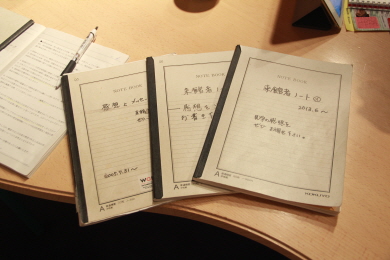
Japanese students interested in “comfort women” issue
Despite the depressing reality described above, not all university students in Japan have given up fighting for the “comfort women” victims. Although Umegaki feels shy about sharing his thoughts on the issue with his indifferent friends, he continues to actively participate in addressing the issue and looking back on the history of his country.
“One’s present life is inevitably an extension of the past,” Umegaki said. “That is why it is important to study history, and why we should all take interest in the ‘comfort women’ issue.”
Umegaki first came in contact with the issue through his school studies. He has a friend who is now living in Korea and interested in history. When Umegaki told him of his newfound interest in the “comfort women” issue, he recommended him to participate in Young Korean Academy (YKA).
YKA is a Korean social organization that was founded in 1913 by Ahn Chang-ho with the purpose of cultivating young people of good character. It aims to build future leader of the Korean nation once it was freed from the Japanese occupation. They also continued to fight the Japanese colonial throughout the 1930s.
The organization is currently running social and educational activities, including a four-day exchange program that Umegaki had taken part in September, 2014. During the exchange program, Umegaki visited Gwangju in remembrance of the 5.18 Pro-Democracy Movement and attended seminars on Korean forced laborers during the Japanese colonization period. Umegaki’s interest in the “comfort women” issue and modern Japanese history grew through these activities.
Meanwhile, Nakamura Momoko (Keisen University, 4), first learned about the “comfort women” when she did a school project on Korean and Japanese modern and contemporary history two years ago. Before that, she had only picked up bits and pieces of information through the media.
“If I had not done the school project, I would have just thought disparagingly ‘Oh, those Korean ladies are starting again,’ whenever the ‘comfort women’ issue was brought up on the news, based on what the mainstream media in Japan reports,” Nakamura admitted.
Umegaki and Nakamura, both willing to disclose their names and personal information, think it is important to tell the others that people like themselves are still fighting.
“When people speak up, it opens the road to conversation, therefore enabling communication and sympathy,” Umegaki said. “That’s why I agreed to express my opinion openly.”
Umegaki, Midori and other nameless Japanese students continue down the road to making a better future for their country.

